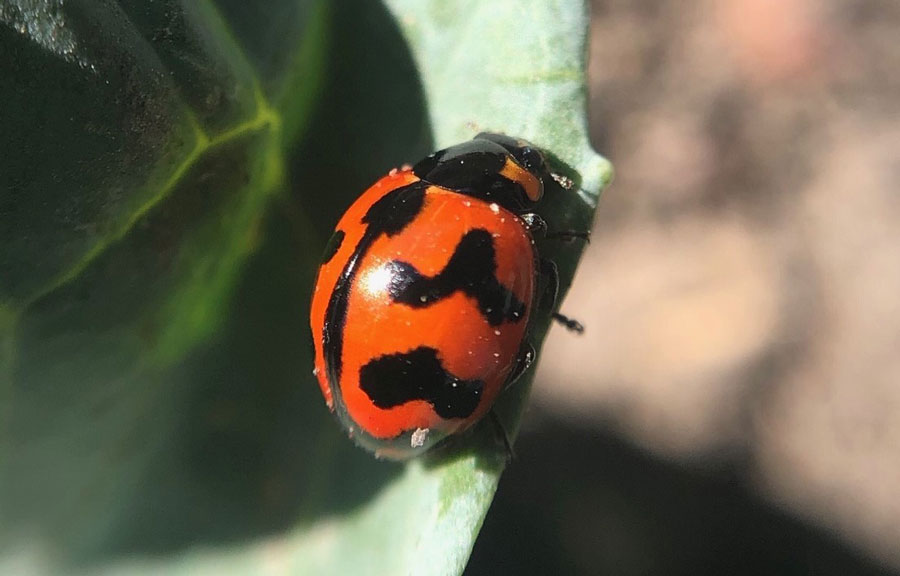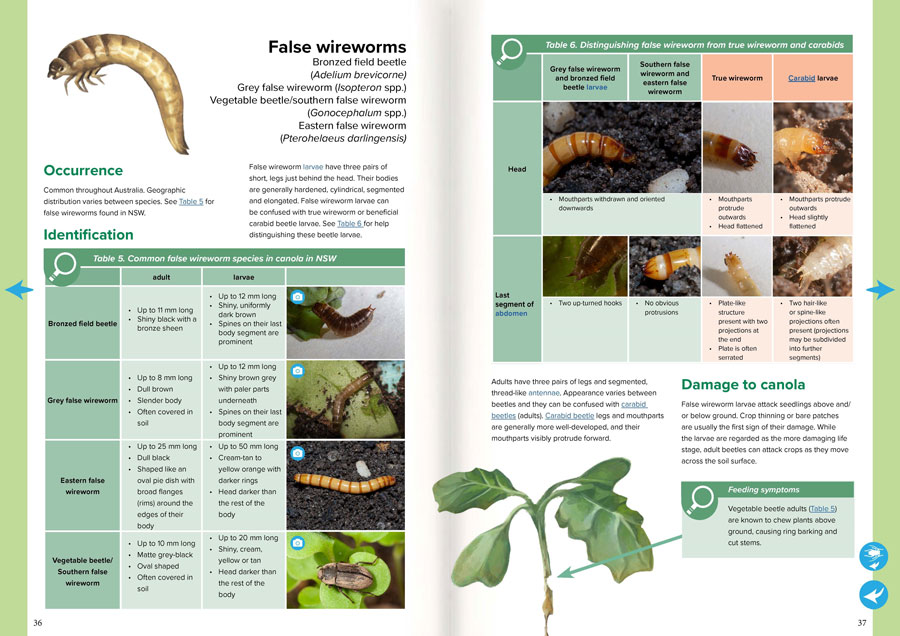Key points
- Early-season canola pests may be better managed through integrated pest management (IPM)
- IPM adoption has been slow as it is knowledge-intensive but support through a ‘community of learning’ may accelerate uptake
- Tracking confidence in growers’ use of IPM is showing a community approach works
Integrated pest management (IPM) is often described as a knowledge-intensive method of protecting crops. To grow a crop using IPM principles, growers must understand pest biology and life history, crop susceptibility, pest monitoring and identification, the most appropriate chemical control options and how to reduce pest habitat suitability.
Knowing the natural enemies that can help keep pest populations under an economically damaging level and ensuring that farming practices are benign (or beneficial) towards these species are also crucial elements of IPM.
A recent extension project, led by Bowden Rural Services, FarmLink, cesar and RM Consulting Group (RMCG), supported NSW canola growers and advisers in a ‘community of learning’, through a season-long IPM training program. The program began before planting in February 2019, as the focus was identifying and exploring management options for early-season pests such as aphids, lucerne fleas, mites, weevils, cutworms, false wireworms and slugs.

Spring is a great time for ladybirds in canola as they are a natural enemy of aphids. Photo: Reinhold Kramer
Learning together
Initial pre-season IPM workshops were held with an emphasis on identifying pests and beneficial species and designing an integrated plan to trial in the lead-up to, and following, planting.
While certain crop pest species are present in or near a paddock throughout the entire plant growth cycle, they can be more problematic during early growth stages when canola seedlings have not produced enough leaf material to compensate for intense insect-feeding damage. Further, just as plants have different nutritional needs according to their stage of growth, the needs of invertebrate pest species can also vary. Therefore, understanding when a pest may be particularly ‘voracious’ on a crop such as canola can also help in making control decisions.
Follow-up events, including a paddock walk and webinars, further investigated IPM options for pests that had been found during the early part of the season, and also explored the impact that monitoring and management can have on canola establishment and growth. More than 400 people engaged in the project activities.
Each extension activity aimed to build on the previous learning opportunity and provided a platform for curious and like-minded participants to meet through the season and discuss IPM options.
Changes to confidence and adoption among participants were tracked throughout 2019 and 2020 by RMCG. It was found that, after completing the workshops, almost all respondents stated that they intended to use or advise on IPM practices in their farming system.

Insect pests of establishing canola in New South Wales can be found on the GRDC website as an interactive PDF.
Novel integration of learning
The value of this approach was threefold:
- Real-time monitoring of events, rather than retrospective evaluation at the end of the project, enabled tracking of changes to attitude, confidence and adoption as each extension activity was conducted.
- A ‘trial it and see’ approach within a community of learning supported local groups in moving forward in learning and sharing together.
- Combined know-how of research entomologists, field entomologists and extension specialists produced high-quality learning materials and advice.
Those wanting to learn more about canola pests in NSW growing areas can refer to an invertebrate pest identification and management guide developed by cesar, Insect Pests of Establishing Canola in New South Wales.
More information: Dr Jessica Lye, cesar, 0401 555 567, jlye@cesaraustralia.com

























































